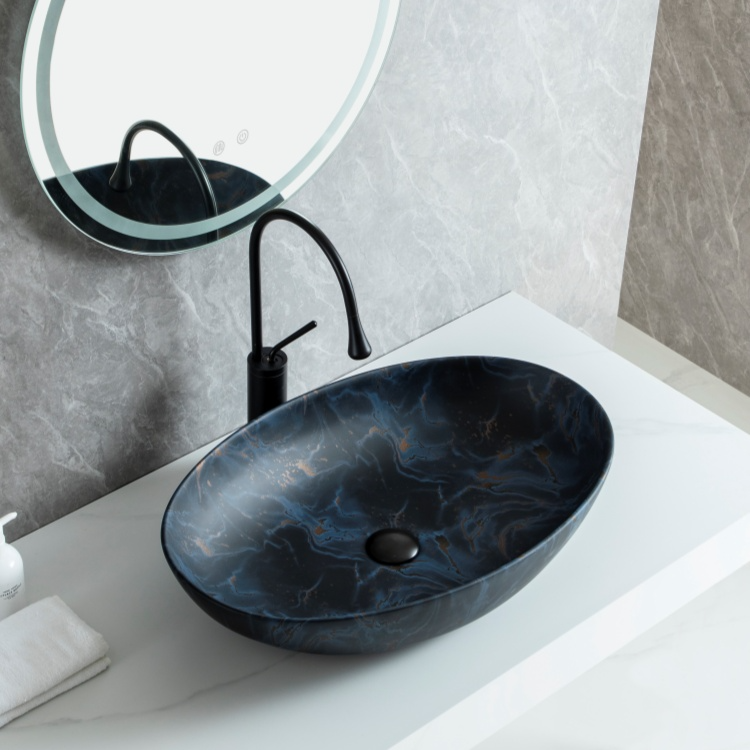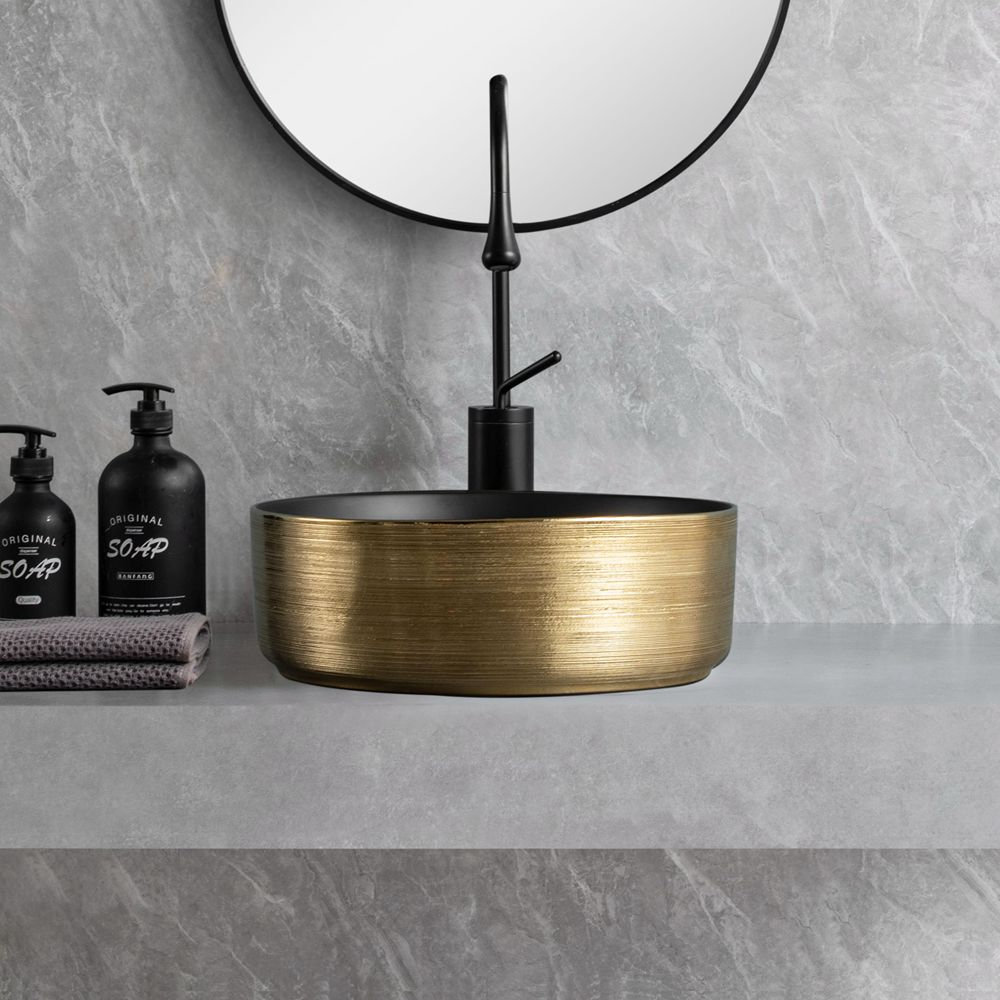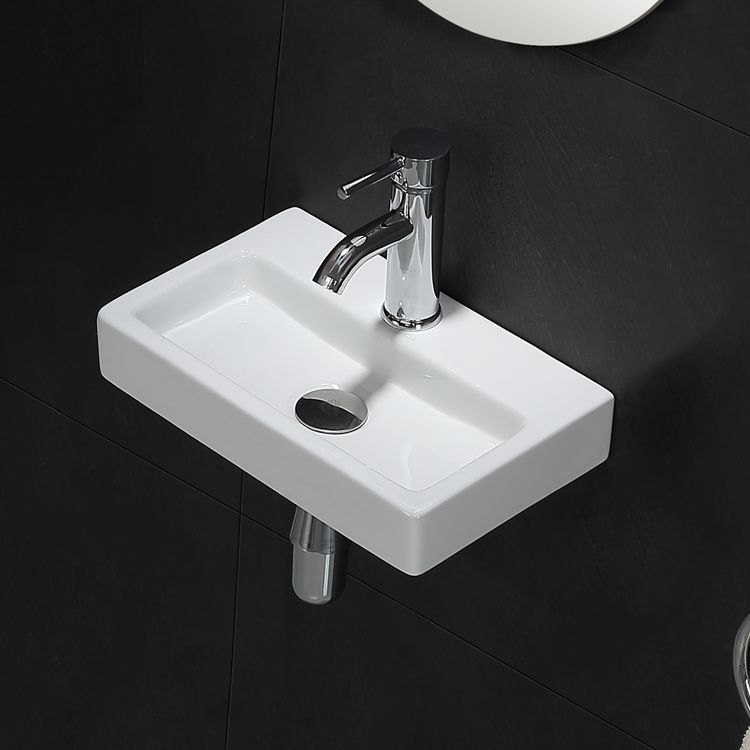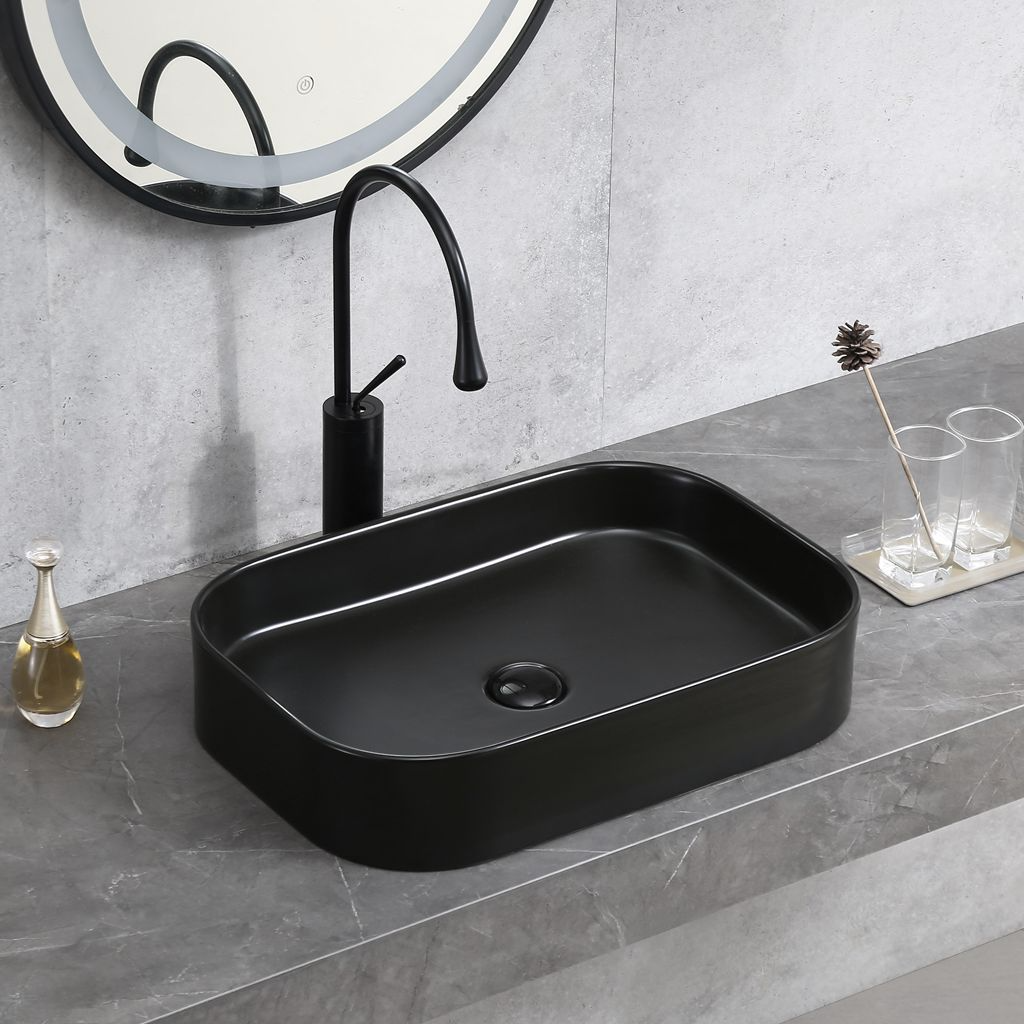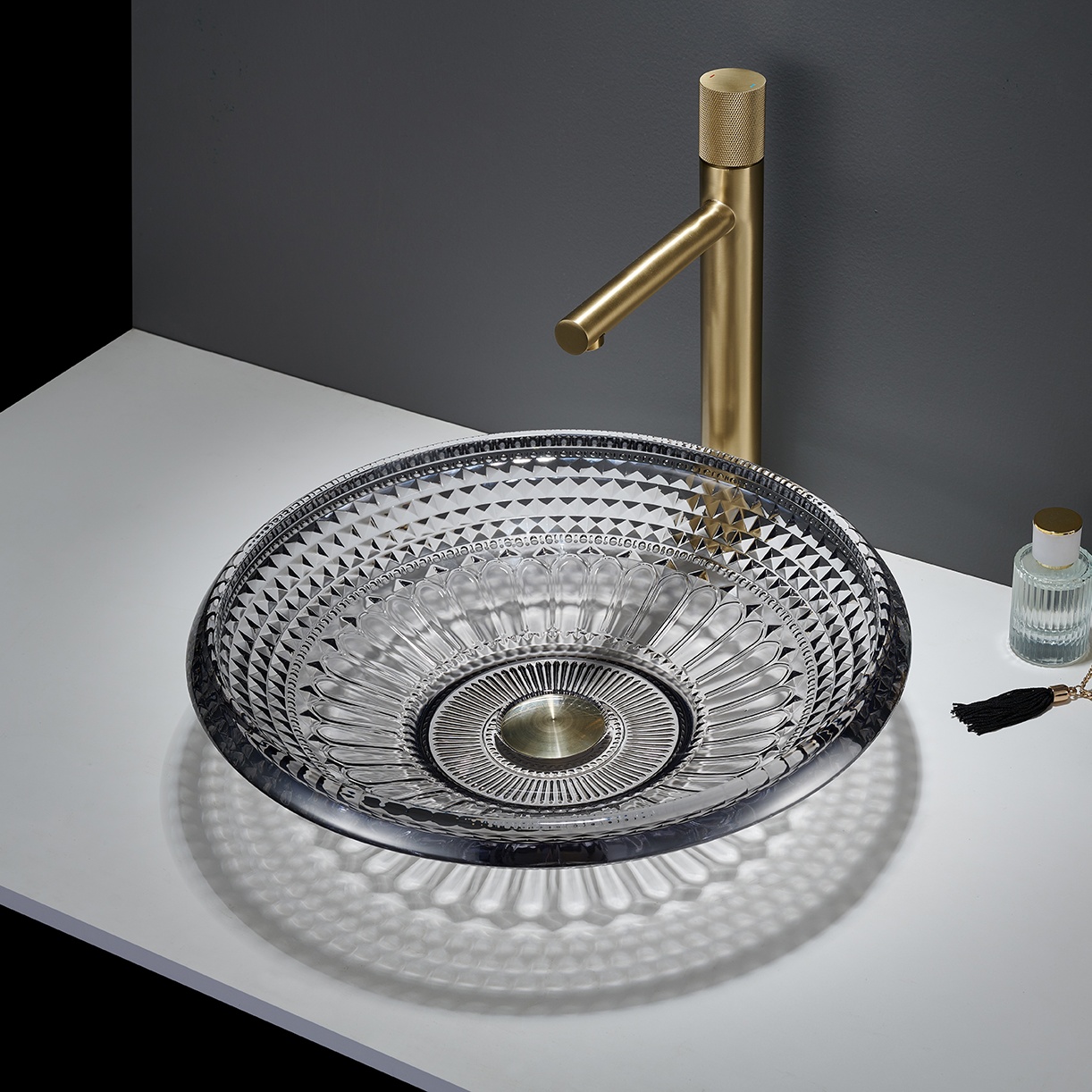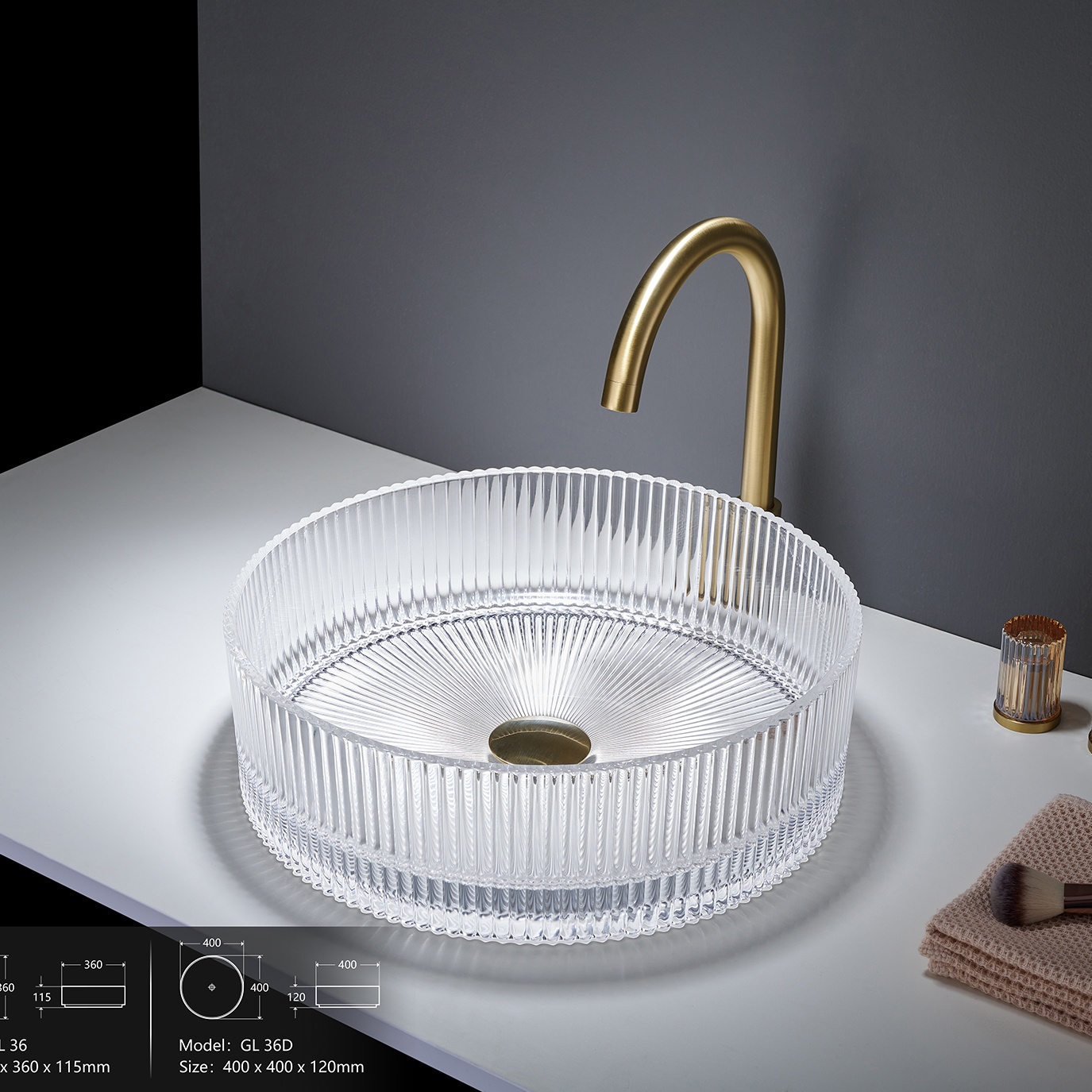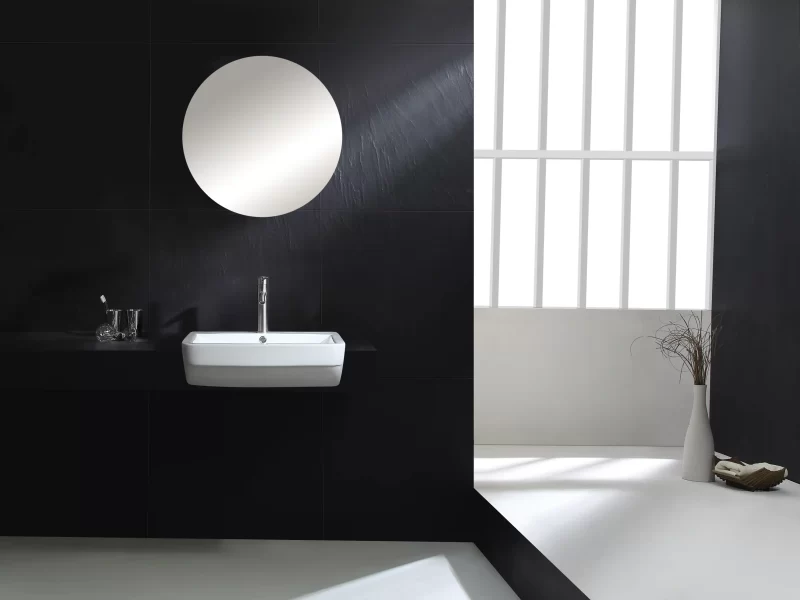
When it comes to bathroom design, one of the most important elements is the bathroom sink, which is an indispensable part of every bathroom. Bathroom sinks involve a variety of material choices, which bathroom sink material will not only affect their aesthetics but also their durability and maintenance requirements.
With so many bathroom sink materials to choose from, which one is the best choice? In this blog, we will explore various sink materials and their pros and cons to help you make an informed decision for your construction project or bathroom renovation.
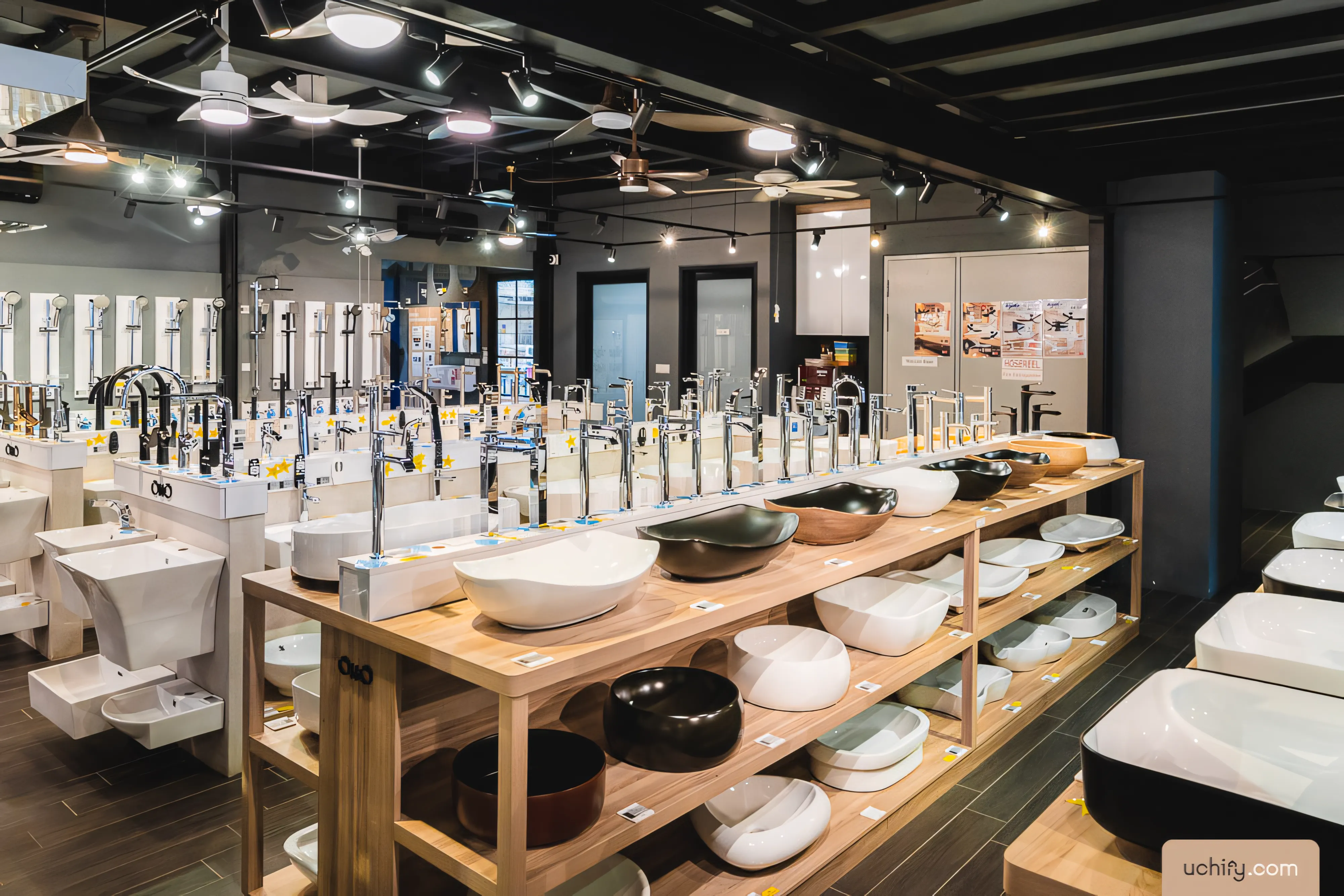
Five Different Bathroom Sink Materials
Ceramic Bathroom Sinks
Ceramic sinks are a timeless classic in bathroom design and are the material of choice for bathroom sinks. They are popular for their elegant and clean appearance.
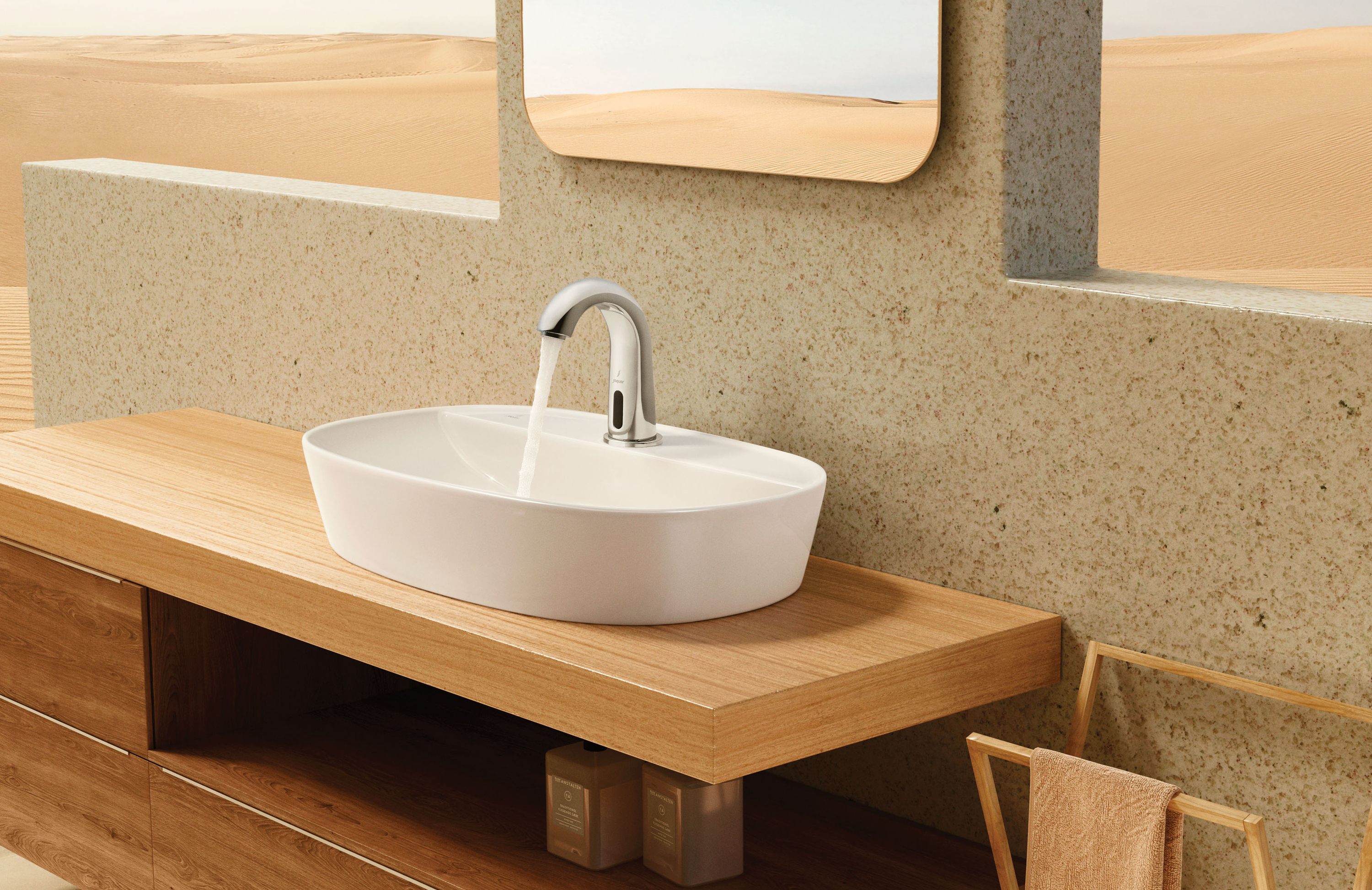
Prós
Design variety: Ceramic bathroom sinks are simple and elegant, and are available in a variety of colors and styles. Thanks to the flexibility of ceramic materials, they can be formed into various shapes and remain strong. Today’s new ceramic sinks have more fashionable designs, such as water-transfer marble sinks and electroplated sinks.
Duradouro: Ceramic bathroom sinks have high hardness and strength, are not easy to scratch and crack, and can maintain their beauty for a long time.
Antibacterial properties: Ceramic materials themselves have natural antibacterial properties, which can effectively prevent bacteria from growing and maintain hygiene. The surface of ceramic sinks is smooth and not easy to stain. It is very convenient to clean and can be restored to shine with a simple wipe.
Resistant to high temperatures and chemicals: Ceramic sinks can withstand high temperatures because they are fired at high temperatures. They are not easily damaged by hot water or hot pots. They are also acid-resistant and alkali-resistant and are not easily eroded by chemical cleaners.
Contras
Fragility: Although ceramic sinks are very hard and can withstand the impacts that may occur in daily life, in extreme cases, if they are hit hard, they may still break or crack.
Difficult to repair: Once a ceramic sink has large cracks or damage, it is relatively difficult and costly to repair, and usually the entire sink needs to be replaced.
Glass bathroom sinks
Because of the transparency of the material, the glass bathroom sink can show beautiful light and shadow effects with the use of lights. It is usually used in places that need a more artistic atmosphere, such as hotels or clubs.
Prós
Fashionable and beautiful: The glass sink has a fashionable and modern appearance. The transparent or translucent design can increase the visual sense of space in the bathroom and enhance the overall beauty.
Diverse designs: Glass sinks can have a variety of colors, shapes and patterns to meet different decoration needs, and there are rich personalized options.
Fácil de limpar: The glass surface is smooth and not easy to adhere to stains and bacteria. It is very convenient to clean. Just wipe it gently with a detergent and cloth.
Good heat resistance: The glass sink can withstand a certain high temperature and is not easily damaged by hot water or hot objects.
Contras
Fragility: Although the tempered glass has a high impact resistance, it may still break or shatter when it is hit violently.
Easy to get water stains and fingerprints: The glass surface is prone to water stains and fingerprints, and needs to be cleaned frequently to keep it bright.
Limited chemical resistance: Glass sinks may not be tolerant to certain chemicals and need to be used with caution to avoid contact with strong acids or bases.
Stainless Steel Bathroom Sinks
Stainless steel sinks are often used in modern and industrial-style bathrooms.
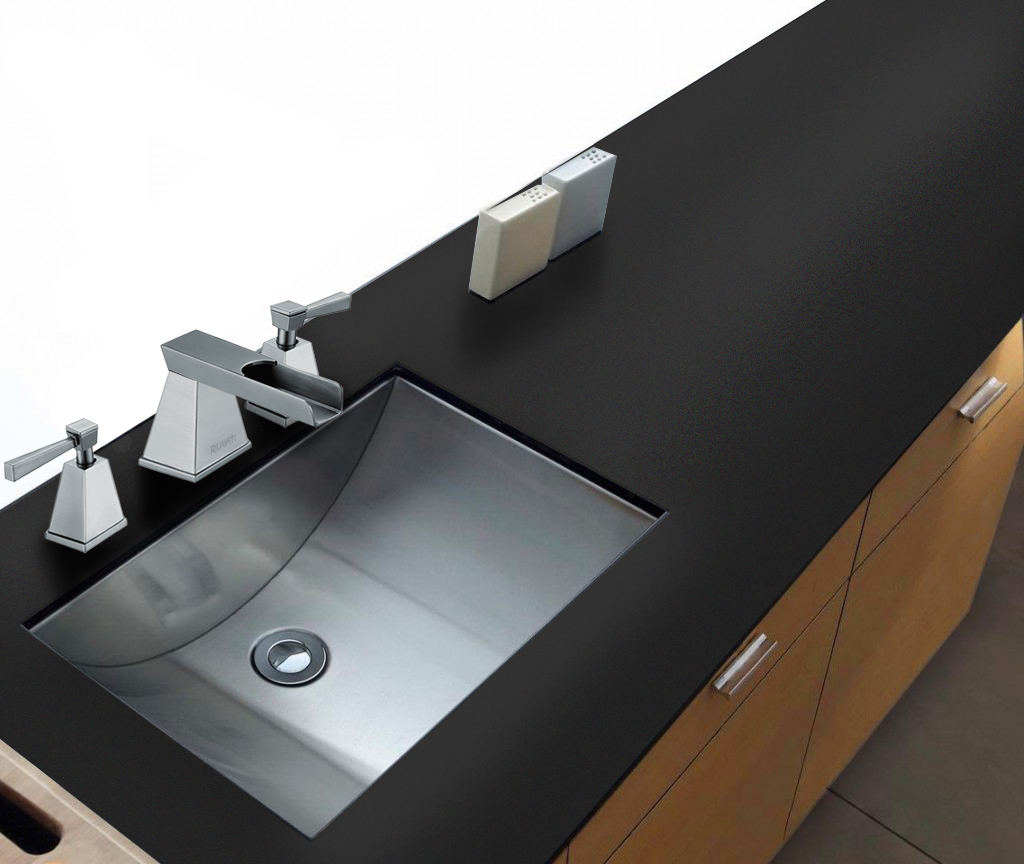
Prós
High durability: Stainless steel bathroom sinks have excellent durability and are not easy to corrode, deform or crack, and can be used for a long time.
Fácil de limpar: Like ceramic sinks, stainless steel has a smooth surface, is not easy to stain and bacteria, and can be kept clean with a simple wipe. Stainless steel is naturally antibacterial and can effectively
High-temperature resistance: Stainless steel sinks can withstand high temperatures and are not easily damaged when hot water or hot objects are placed.
Lightweight: Compared with bathroom sinks made of other materials, stainless steel sinks are lighter and easier to install. Stainless steel sinks are usually designed as under-counter basins or drop-in basins.
Contras
Noise problem: When water flows hit stainless steel sinks, it is easy to generate loud noise, and noise reduction pads or other measures may need to be added.
Easy to scratch: The surface of stainless steel is relatively soft, and it is easy to scratch during use, affecting the appearance.
Limited design: Although stainless steel sinks have a modern appearance, the design and style are relatively simple, and the selection range is limited.
Dents may occur: When impacted by heavy objects, stainless steel sinks may become dented, affecting their appearance and usability.
Stone Resin Bathroom Sinks
Stone Resin is an increasingly popular material. Made from a combination of resin and natural stone particles, these sinks combine beauty and functionality in one.
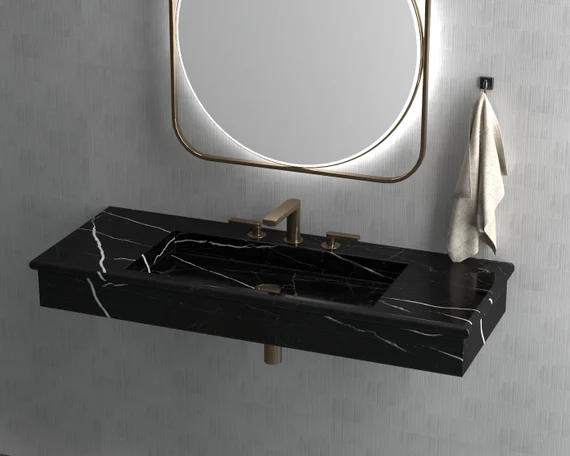
Prós
Duradouro: The combination of resin and stone particles creates a strong, durable surface that can withstand daily use without chipping or cracking.
Imitates Natural Stone: Available in a variety of colors and textures, Stone Resin sinks mimic the look of natural stone but are lighter than natural stone.
Easy to Clean: Stone Resin sinks are non-porous, which means they resist stains and are less likely to harbor bacteria. A simple wipe with a mild detergent is usually all that’s needed.
Affordable: Stone Resin sinks are relatively more affordable than some natural stones, such as marble or granite.
Contras
Not Scratch-Proof: While durable, Stone Resin is not completely scratch-proof. Sharp objects or abrasive cleaners can leave marks on the surface, so gentle cleaning materials must be used.
Not Heat-Resistant: Stone Resin can be damaged by heat. Placing hot pots or hairdressing tools directly on the sink surface may cause cracks or discoloration.
Relatively heavy: Compared to ceramic or stainless steel, a Stone Resin sink is heavy and requires additional support during installation. When choosing a Stone Resin sink, make sure that the bathroom countertop can handle the weight of the sink.
Fading: Stone Resin sinks may fade over time, especially when exposed to direct sunlight. This can cause the appearance of the sink to change.
Natural Stone Bathroom Sinks
Natural stone sinks, such as granite, marble, and travertine, have a luxurious and earthy aesthetic. These sinks are known for their durability and timeless beauty.
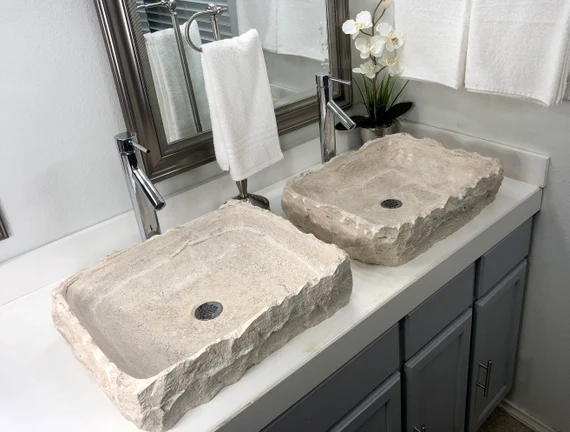
Prós
Unique beauty: Natural stone has unique textures and colors, each sink is unique and can enhance the overall grade and beauty of the bathroom.
Strong durability: Natural stones such as marble, granite, etc. have high hardness and strength, can be used for a long time and are not easy to wear.
Heat and cold resistance: Natural stone has excellent heat and cold resistance, and is not easily damaged by temperature changes.
High-end luxury: Natural stone is often used in high-end decoration, which can enhance the luxury and taste of the bathroom.
Contras
Expensive: Natural stone is usually expensive due to its rarity and uniqueness, and is not suitable for consumers with limited budgets.
Heavy weight: Natural stone is relatively heavy, and requires a more solid support structure when installed. The installation process is complicated and time-consuming.
Easy to penetrate stains: Some natural stones, such as marble, have tiny pores that are easy to penetrate stains, and require regular glazing and maintenance to prevent stain penetration.
High maintenance cost: Natural stones require regular maintenance and maintenance, such as waxing and glazing, which increases the cost of use and the difficulty of maintenance.
The above are the advantages and disadvantages of common bathroom sink materials. These 5 types of materials are also market-proven and suitable for long-term use of sinks in the bathroom. Each material has its own unique advantages and disadvantages. Choosing the best material for your bathroom sink ultimately depends on your design preferences, budget, and maintenance expectations.
What is the Best Material for Bathroom Sinks?
For bathroom sinks, we cannot definitely point out which material is the best, but we can say which one is relatively the most suitable. For bathrooms in different places, their needs are different. For example, for home bathrooms, more attention is paid to durable and easy-to-clean sinks, while for hotel bathrooms, more attention is paid to beautiful and resistant to detergent corrosion sinks.
Ceramic bathroom sinks: the first choice for homes, hotels, office buildings, and public bathrooms
Sinks for homes, hotels, office buildings, and public bathrooms require excellent durability, easy cleaning, and a beautiful appearance. Ceramic bathroom sinks are the first choice because of their durability, easy cleaning, and beautiful appearance. Ceramic sinks can not only withstand the wear and tear of daily use, but also have antibacterial properties to ensure a hygienic environment. At the same time, its diverse designs and color options can be perfectly integrated into various decorative styles, making the bathroom look more upscale and neat.
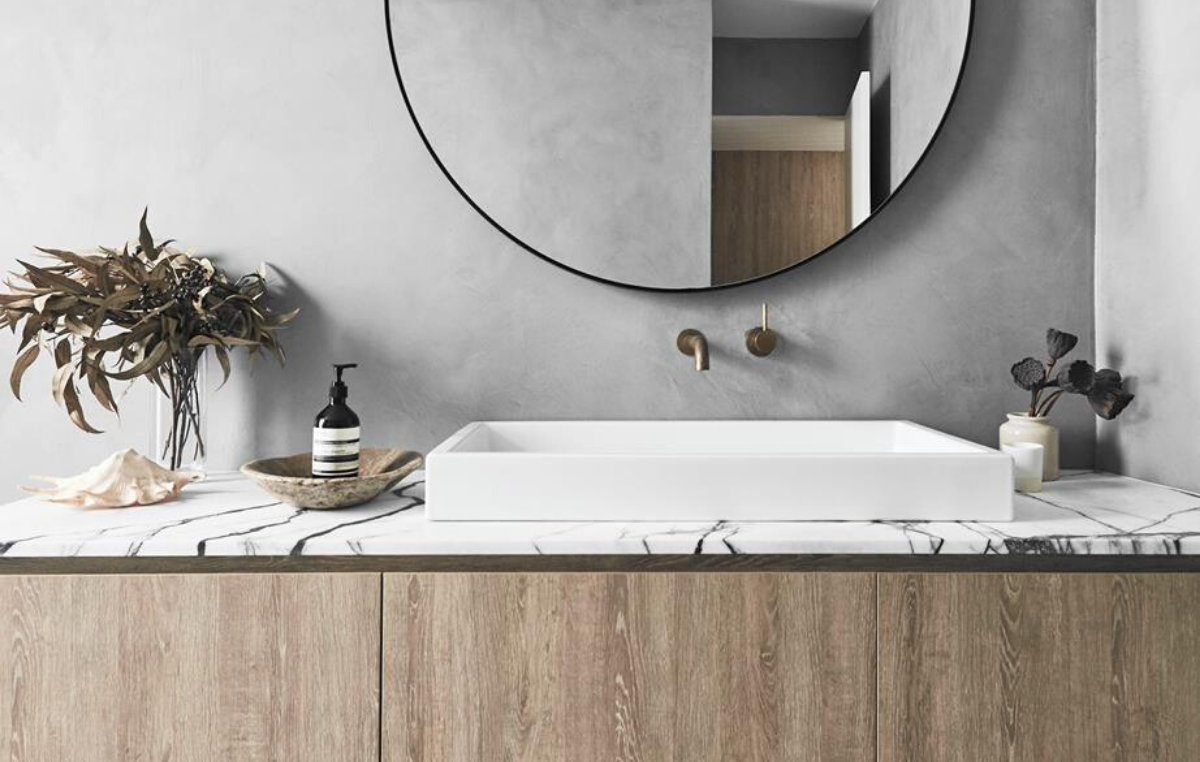
Stainless steel bathroom sinks: the first choice for industrial bathrooms
Stainless steel sinks are the first choice for industrial bathrooms because of their excellent durability, corrosion resistance, and easy cleaning. Stainless steel materials can withstand a variety of harsh environmental conditions, including high temperatures, chemicals, and frequent use, while having low maintenance costs and long service life. Its modern and simple appearance also meets the practical and aesthetic needs of industrial sites, ensuring an efficient and hygienic working environment.
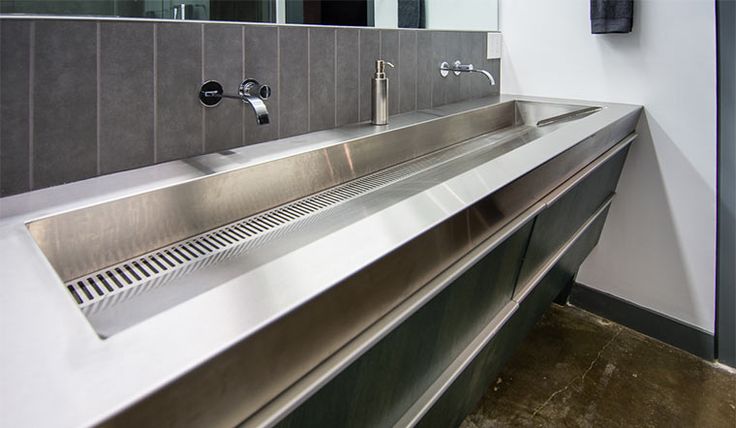
Natural stone bathroom sinks: the first choice in high-end venues
Natural stone sinks are the first choice in high-end venues, which require more unique beauty and luxurious texture. Each natural stone sink has a unique texture and color, showing high-end and unique taste. Its sturdy and durable characteristics not only ensure the reliability of long-term use, but also add elegance and luxury to the club through exquisite design and high-quality materials, improving the overall grade and customer experience.
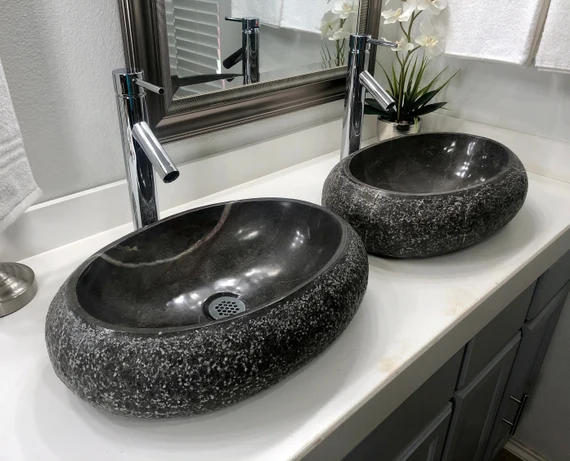
Bulk Buying and Customizing Ceramic Bathroom Sinks for Building Projects
For construction projects or large-scale bathroom renovations, buying ceramic sinks in bulk is a more economical choice. Many ceramic sink manufacturers can provide companies with beautifully designed wholesale bathroom sinks, and even have OEM and ODM services to help companies customize ceramic sinks.
HanYu é um bathroom sink manufacturer with more than 20 years of manufacturing experience. We focuse on providing companies with a variety of sink design options, and have rich OEM/ODM experience to provide customers with flexible customized sink solutions. We have served more than 150 countries around the world, and our wholesale ceramic sinks have received many positive reviews from customers.
Whether for homes, hotels, office buildings, or high-end venues, HanYu provides suitable high-quality and beautifully designed bathroom sinks. With advanced production technology and a professional design team, we can not only meet product needs, but also provide perfect customer service, committed to giving customers a satisfactory purchasing experience and improving customer satisfaction.
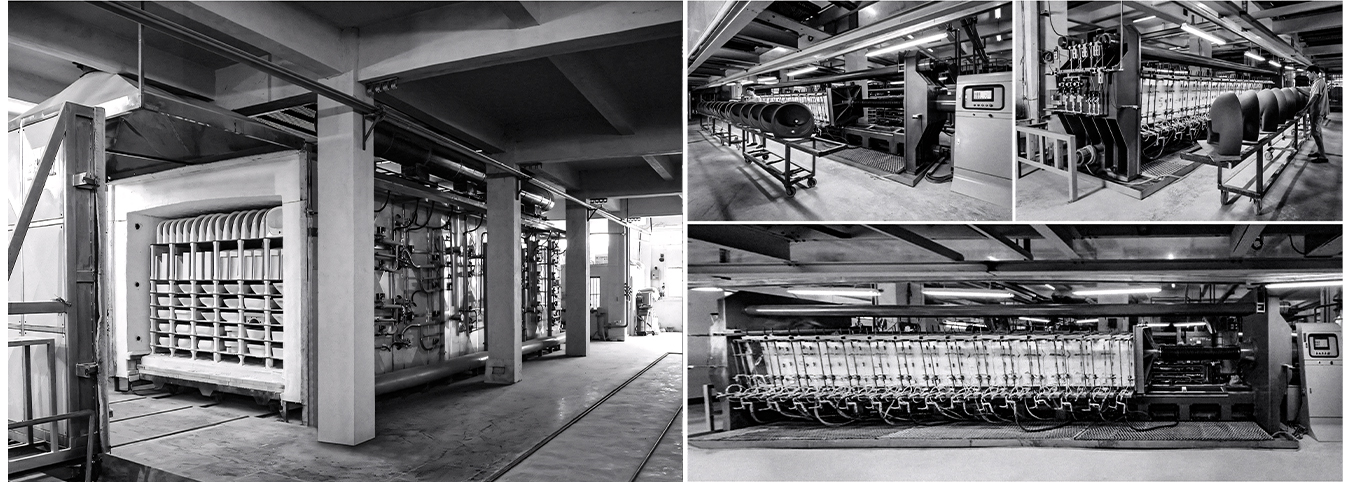
If you are looking for wholesale bathroom sinks, or customized sink services, please contact us, we are willing to answer any questions for you.
Clique aqui to explore our wholesale sinks design.
Clique aqui to learn about our custom bathroom sinks service.

